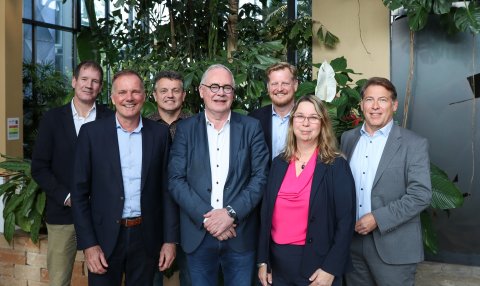
One of the favourite questions of any CFO is “So what? Why should I care?”
In relation to a conversation about an IWMS investment, one classic example is the facility manager going in to talk to the CFO and saying, “We can produce our reports much more easily with this tool.” And the CFO will respond with, “So what? I get the reports that I need now. I don’t care how difficult it is to produce them. Why do I need to invest in new software?”
This is one of the questions that Verdantix addresses in their new report on calculating the ROI of an IWMS.
The argument about making your employees’ lives easier may not work with the CFO. Producing a report more easily will not be a compelling enough reason. However, if the difficult report takes three weeks to compile, you can easily argue how much of a person’s salary is spent on a report that could be done with just a few clicks.
Verdantix gives multiple examples of organisations that took “making staff lives easier” and quantified them into measurable benefits:
- A global technology firm found the move from 60 decentralised systems to a single IWMS for lease, space and maintenance management supported a reduction of its workplace and facilities workforce by 70%, which represented a reduction of over 100 staff.
- An Australia-based gas pipeline operator made the business case for an upgrade by calculating that the IT team was wasting the equivalent of $156,000 of time annually responding to system crashes.
- Imperial College London indicated the move to Planon’s IWMS could reduce each administrator’s time booking rooms from 17 hours to 8.5 hours per week.
The challenge in creating a business case for IWMS that will appeal to a CFO is in getting away from the experiential argument and moving toward the numbers-based arguments.
It’s not about experience
We’ve talked before about the “war for talent,” the importance of employee engagement, and personalising the employee experience. It’s a hot topic in the world of FM at the moment but these discussions are very susceptible to the “so what?” questioning of a CFO.
These topics should be included in a business case for an IWMS to the extent that they can be quantified. For example, telling the CFO that it is expensive to recruit and train new people will not be a compelling argument. However, being able to say you spend $6 million a year recruiting and training staff that don’t stay more than 12 months creates a much stronger argument. Reducing this spend by 5% or 10% with more engaging workplaces can create huge savings potential.
The Verdantix report mentions that many IT departments do not charge the facilities team for maintaining legacy systems. Combining this with numbers like the example above, but about time wasted on system crashes can create a compelling argument for how an IWMS will support IT.
Corporate real estate and facility managers don’t have easy access to these numbers, but the numbers do exist in the business. Collaborating with HR on employee retention costs or collaborating with IT on the costs of system crashes creates a more convincing and more engaging business case for the CFO.
Collaboration is key
As I mentioned in my last blog post, I consider the true value of an IWMS to be collaboration and conflict resolution. It’s imperative to involve other departments in your business case and financial scenarios before an IWMS has even been purchased.
As with any other discussion about IWMS, it needs to be cross-disciplinary and is inevitably going to cause office politics. Before you go to the CFO and mention other departments – like HR and IT – you’d better have those departments on your side, or at least aware of what you are saying. Be sure they have bought into the numbers you are using, because the CFO will want to clarify any numbers with the departments affected.
The CFO has always been the “holy grail” when it comes to discussions about purchasing an IWMS, as the financial gatekeeper to making this kind of investment. The report from Verdantix helps with speaking the language of the C-suite.




















